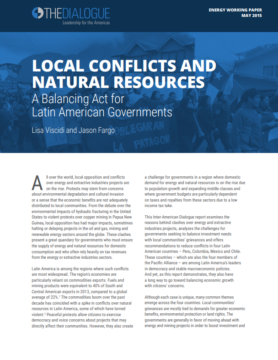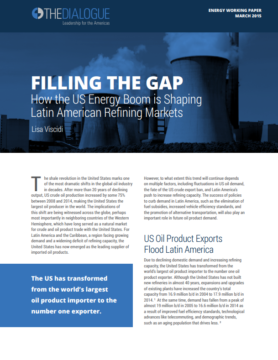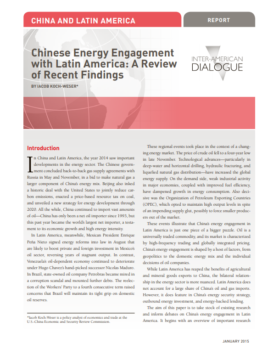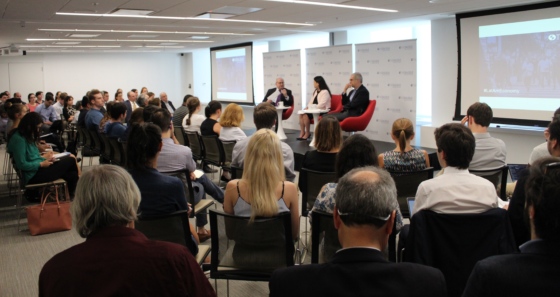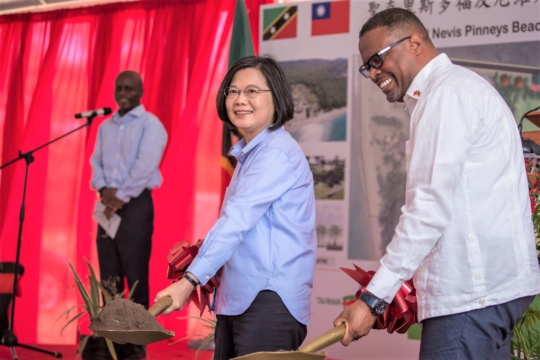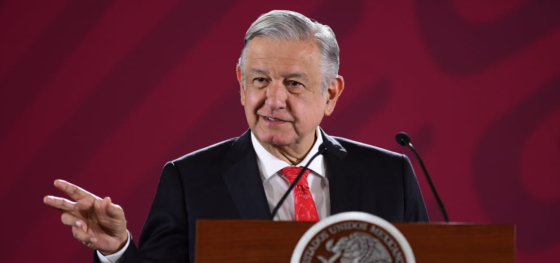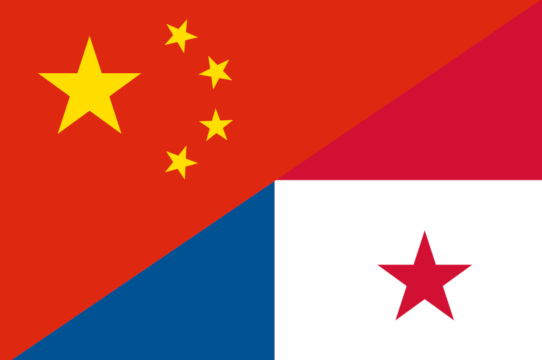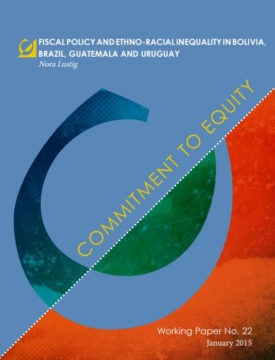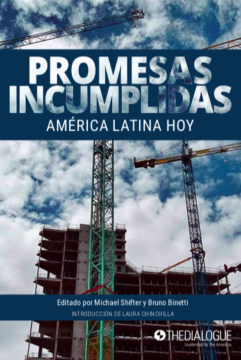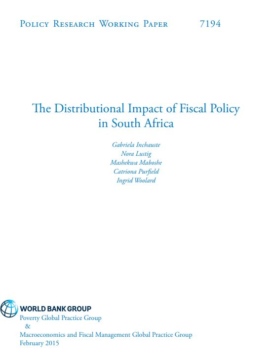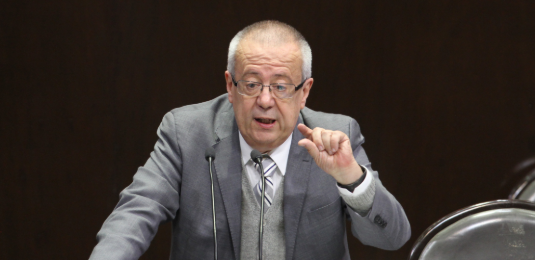
Will Urzúa’s Exit Destabilize Mexico’s Economic Policy?
What does Urzúa’s departure say about the direction of Mexico’s economic policy?
What does Urzúa’s departure say about the direction of Mexico’s economic policy?
La directora del Programa de Energía Lisa Viscidi habló con NTN24 sobre por qué a Rusia le interesa formar parte de la OPEP (Organización de Países Exportadores de Petróleo) a pesar de los problemas que esto supone para el país.
Countries in the Amazon Basin are falling behind on their targets to cut deforestation. Environmental enforcement combined with economic incentives could provide a way forward, write Lisa Viscidi and Enrique Ortiz in this op-ed.
Conflicts over energy and natural resources are leading to social turmoil and posing serious challenges for investment projects all over Latin America. To better manage such conflicts, Latin American governments must step up their involvement in the consultation process and communicate more effectively with local communities about potential social, environmental and economic impacts, according to a new report by the Inter-American Dialogue.
The surge in unconventional oil and gas production in North America has dramatically shifted energy markets in the Americas, with important implications for Latin America and the Caribbean. A new report by Lisa Viscidi, Director of the Energy, Climate Change and Extractive Industries Program at the Inter-American Dialogue, examines the factors behind rising oil demand and the growing deficit in refining capacity in Latin America, as well as the geopolitical implications of increasing US oil product exports to the region.
Why are expectations for Brazil’s economic growth ebbing even as the pension reform advances in Congress?
This report offers an extensive review of the English, Chinese, Spanish, and Portuguese literature on Chinese overseas energy sector engagement, highlighting a sub-set of issues especially relevant to policymakers. These include China’s effect on global commodity markets, the country’s outbound investment policies, and the extent to which China has a centralized strategy for overseas energy resource acquisition. The report concludes with timely suggestions for further research on Chinese energy engagement in the Americas.
On July 22, the Dialogue hosted the event “Confronting Latin America’s Economic Challenges: What Can the Region Do?” with Joyce Chang, the Chair of Global Research at JP Morgan, and Santiago Levy, a nonresident fellow with the Global Economy and Development Program at Brookings and president of the Latin American & Caribbean Economic Association.
China’s economic outreach in LAC has eroded Taiwan’s diplomatic presence in the region, but mixed investment results and divided public reception will complicate China’s attempts to cultivate new relations.
¿Qué tan bien está manejando la economía el presidente Andrés Manuel López Obrador?
After 20 years of on-and-off negotiations, leaders from the European Union and South America’s Mercosur trade bloc announced late last month that they had reached a sweeping trade agreement encompassing 800 million people and almost a quarter of the global economy. In an email interview with WPR, Bruno Binetti, a Buenos Aires-based research fellow at the Inter-American Dialogue, discusses the many obstacles standing in the way of the deal’s successful implementation.
Best outcomes for Panama, whether in its relations with China or other economic partners, will depend on the country’s commitment to open and equitable procurement processes and effective project monitoring and evaluation.
African descendants and indigenous peoples in Latin America face higher poverty rates and are disproportionately represented among the poor. Per capita income of the white population can be sixty percent higher to twice as high as the per capita income of the African descendant and indigenous populations.
El libro busca hacer un balance de donde se encuentra América Latina en una serie de temas cruciales: desarrollo socioeconómico, seguridad y violencia, estado de derecho, crecimiento económico, integración regional y relaciones con el mundo.
This paper, published uses the 2010/11 Income and Expenditure Survey for South Africa to analyze the progressivity of the main tax and social spending programs and quantify their impact on poverty and inequality.
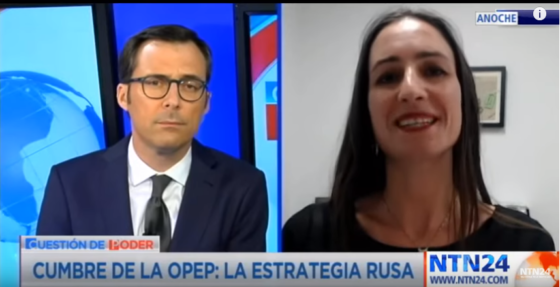 Video
Video

